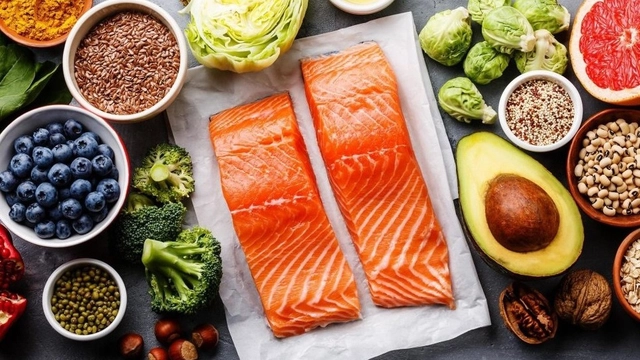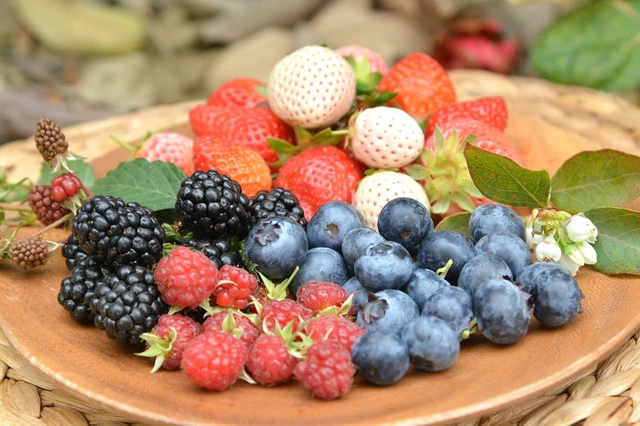According to experts at the Harvard TH Chan School of Public Health, a growing body of research shows that diet not only affects the risk of obesity, diabetes and heart disease, but is also linked to cancer.
1. The impact of diet on cancer risk
In recent years, public concern about the impact of diet on the risk of cancer and other diseases has become more widespread.
What we eat has a direct impact on our health, both positively if we eat a healthy, well-balanced diet and negatively if we eat an unhealthy diet. One of those negative impacts is cancer risk.
The biological mechanisms behind different types of cancer are different, but a common culprit is inflammation. When inflammation caused by diet becomes chronic. Chronic inflammation occurs over many years and cells become unbalanced, mutating, leading to disease.
Other factors include high levels of insulin circulating in the body, which occurs in obesity and in the early stages of type 2 diabetes, and certain fats.
According to Edward Giovannucci, professor of nutrition and epidemiology at the Harvard TH Chan School of Public Health, chronically high levels of inflammation and insulin can promote cancer, which is the biggest impact of diet on cancer.

A diet rich in anti-inflammatory foods helps reduce the risk of cancer.
2. Do anti-inflammatory foods help reduce cancer risk?
In fact, inflammation is the body’s normal response to infection, illness, and injury. If the inflammation response is short-term and aimed at repairing tissue or clearing infection from the body, it is called acute inflammation. But if chronic inflammation persists over time, it increases the risk of diseases such as heart disease, diabetes, and even cancer.
According to the American Cancer Society, inflammation has long been recognized as the body’s response to tissue damage, and its link to infection has been noted for hundreds of years. However, the role of inflammation in causing cancer has been recognized more recently, and the relationship between diet, inflammation, and cancer risk (as well as heart disease and premature death) remains a growing area of research.
A combination of laboratory and human studies has identified certain foods and the chemicals they contain that promote inflammation in certain body tissues. This is the basis of anti-inflammatory diets, which have some common features such as eating lots of fruits and vegetables and eating less red and processed meat. The American Cancer Society recommends eating a variety of colorful fruits and vegetables every day to help prevent cancer.
3. Some of the Top Anti-Inflammatory Foods That Help Prevent Cancer
The specific health benefits of tomatoes that have been studied include the anti-cancer properties of lycopene and other tomato components such as fiber, vitamin C, and the phenolic ferulic acid.
Tomatoes are particularly rich in an antioxidant called lycopene, the pigment that gives tomatoes their red color. Research suggests that the powerful antioxidant effects of lycopene may help prevent or slow the progression of certain cancers, such as breast and prostate cancer, by inhibiting tumor growth.
Although comprehensive studies in humans have not been conducted, researchers believe that the lycopene and beta-carotene in tomatoes may help reduce the risk of cancer. These two antioxidants have been shown to have anti-cancer properties in test-tube studies using cells.
- Green Tea
Many studies have shown that compounds found in tea leaves such as polyphenols, catechins, and theaflavins can reduce inflammation in the digestive tract and cardiovascular system.
The natural antioxidant catechin (EGCG) in green tea helps prevent cell damage, reducing the formation of free radicals in the body. EGCG inhibits inflammation by reducing the production of inflammatory cytokines and damage to fatty acids in the body’s cells.
Grapes, especially purple and red grapes, contain resveratrol, which has strong antioxidant and anti-inflammatory properties. In laboratory studies, it has prevented the type of damage that can trigger cancer in cells.
- Dark leafy greens
Dark leafy greens such as broccoli, lettuce, kale, spinach, and Swiss chard are rich in fiber, folate, and carotenoids. These nutrients may help protect against cancers of the mouth, larynx, pancreas, lung, skin, and stomach.
- Berries
Berries such as strawberries, blackberries, blueberries, raspberries, etc. contain antioxidants called anthocyanins. These compounds have powerful anti-inflammatory effects that may reduce the risk of disease. Antioxidants may help fight cancer by removing free radicals from the body before they can damage cells.

Berries are rich in antioxidants that help fight cancer.
- Pomegranate
Pomegranates are rich in antioxidants ellagic acid and punicalagin, which help protect cells from damage. By fighting inflammation and protecting cells, pomegranates may play a role in reducing the risk of developing various cancers, such as breast, prostate, and colon cancer.
- Turmeric
Turmeric contains curcumin, a nutrient with powerful natural anti-inflammatory properties and is a potential anti-cancer agent. Turmeric is effective in treating a number of diseases, including inflammatory bowel disease, cancer, diabetes, arthritis, and more. Laboratory studies have shown that it can block the transformation, proliferation, and invasion of cancer cells in many types of cancer.





